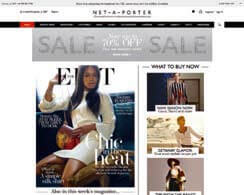Young, gifted and brave
The quality that unites successful marketers right across the age spectrum is talent. Those who made it into Marketing’s Next Generation Power 100 list, celebrated in this month’s publication, have simply pulled off the trick of combining that gift with a date of birth in the past 30 years. Youth has neither a monopoly nor a special claim on sheer, natural ability.
Yet there is a second quality that does tend to go hand-in-hand with youth – one that, when shackled to modest ability, is positively dangerous, but, when combined with pure talent, is like the air in the petrol cylinder.
That quality is courage. Here are just some of the reasons why it matters more in marketing than it does in most other careers.
Marketing is fuzzy.
Its multifaceted problems rarely yield to algorithm. This means that those around the table with you can, quite justifiably, voice opinions totally out of kilter with the ones forming inside your own mind. If you are able to see things more clearly than them, that is a massive asset. But without the courage to speak up, and risk being the one person out of line, it is meaningless.
Marketing is overburdened with outside ‘experts’.
Research specialists, digital wizards, advertising people, innovation gurus, brand consultants: they come with their frameworks, their authority, and their swagger. Sometimes, what they have to offer is of value. Often, it deserves to be challenged. If you can spot a chink in their reasoning where others cannot, you alone could be responsible for preserving the integrity of the brand. But you’ll need to be gutsy. There is no pique quite like that of an expert brought back down to earth.
Marketing is susceptible to fashion.
Consumer insights, behavioural economics, big data, social media, engagement, the internet of things: all have a part to play in modern marketing. It’s the sudden ferocity that pushes one to the fore, and compels all to genuflect before it, that is our industry’s abiding weakness. Being the one person willing to question the flavour of this particular month can feel like turning up to a party where everyone but you is in fancy dress.
Marketing is outgunned within the organisation.
‘Marketing-led’ businesses – such as Virgin, or Innocent – are celebrated, but rare. In most organisations, marketing is the ‘Cinderella’ discipline. The big, ugly sisters are finance and operations. You and your team may well have created something sufficiently imaginative and out-of-the-box to rejuvenate the brand, but when finance declares that the numbers don’t stack up, and operations are in apoplexies about the changes implied, you’ll need nerves of steel, not just a masterful presentation style, to get it past the board.
Marketing means leaps.
Imagine you are looking at a ‘need-state’ analysis (from one of those outside ‘experts’) and it shows that, for the product innovation you have spent months developing, there is no proven need. Yet you have this hunch, this irresistible intuition, that consumers, when presented with the new product, will suddenly find their own need. Now the stakes are high. Do you have the bottle to press forward? Because from here, there are only two choices: take that leap of faith – or don’t. (See panel for some who have.)
If young marketers are less cautious than those with a few miles on the clock, it’s not hard to see why. Sticking your neck out when school fees and the mortgage are at stake is harder than when it’s just you and the rent.
And there are other ways that courage can become blunted over the years: by being ground down once too often, or, conversely, by winning great accolades, and then getting into a groove of repeating the techniques that earned them, rather than seeing each new challenge in its own right.
Talent, though, is forever. It may lie dormant, it may be suppressed by an excess of caution, but it is always there. What the intake of fresh-faced, energised young marketers brings to the team isn’t any special skill or ‘native’ understanding that the mature marketers lack. What they bring is daring, chutzpah and fearlessness. And the very best managers will ensure that at least a little of that rubs off.
When the research is equivocal, or even hostile, when those around you are saying “It won’t work”, the choices become stark. Either back your impassioned hunch with a ‘leap of faith’ or pull out. Here’s to some of those who have taken the leap.
Yakult Bacteria were always the bad guys, associated with dirt and disease. Many brands earned a living by pledging to wipe them out. We might have become used to the idea of imbibing ‘good bacteria’ now, but imagine how that must have looked back in 1996, when Yakult first attempted to persuade people to drink, well, germs. The reward for that bravery was first-mover advantage in an entirely new category – probiotics – now worth $32bn globally.

iPad Five years ago the critics were sure that this was a device that no one needed – a “third computing gadget that doesn’t do anything the other two don’t”. “Just a giant iPod Touch aimed at old people”, with a name that “sounds like a feminine hygiene product”. Steve Jobs reported to his biographer, Walter Isaacson, that he received 800 messages in the 24 hours following the launch, most critical of the new concept. They were wrong, Jobs was right. By 2014, sales had reached 225m units.

Net-a-Porter Back in 2000, received wisdom was stacked against the idea of selling luxury fashion online: no one would buy a $4000 handbag without touching it; luxury fashion wasn’t just about design, but also the experience and service; high-end designers needed to retain their mystique and guard accessibility. As a fashion journalist at Tatler, Natalie Massenet knew all about the drawbacks, but she also knew that the one commodity luxury consumers were short of was time. With a hunch that she could deliver the luxury experience online both for designers and consumers, she went ahead and launched Net-a-Porter. In 2009 she sold her business to Richemont for an estimated £50m.

